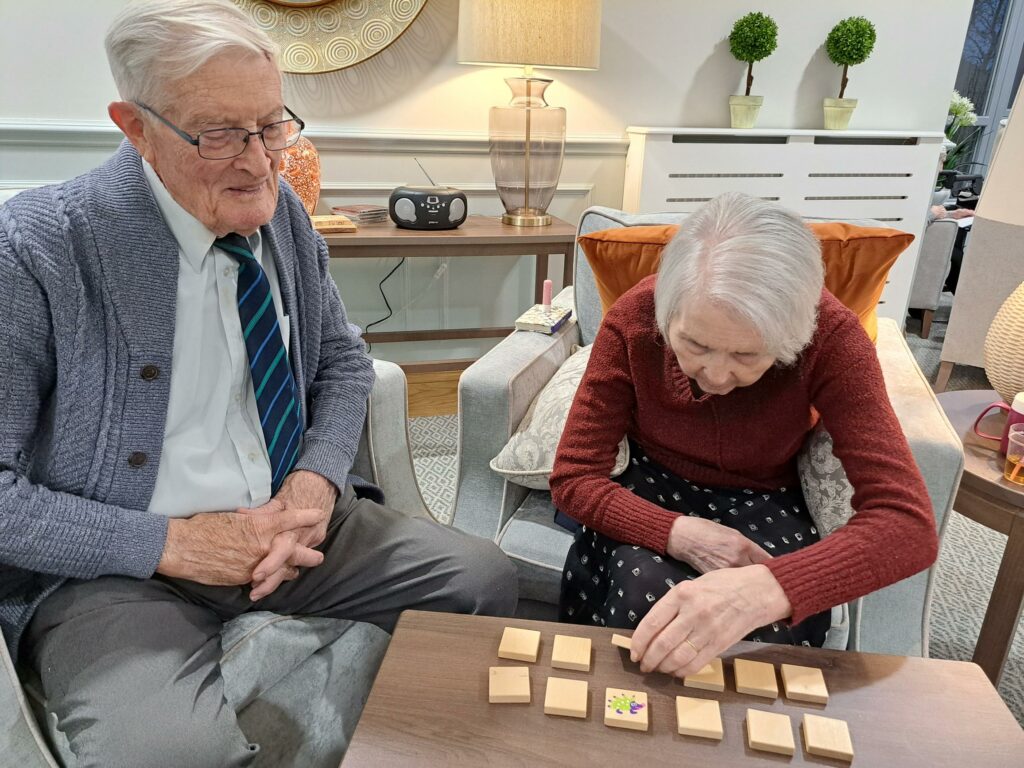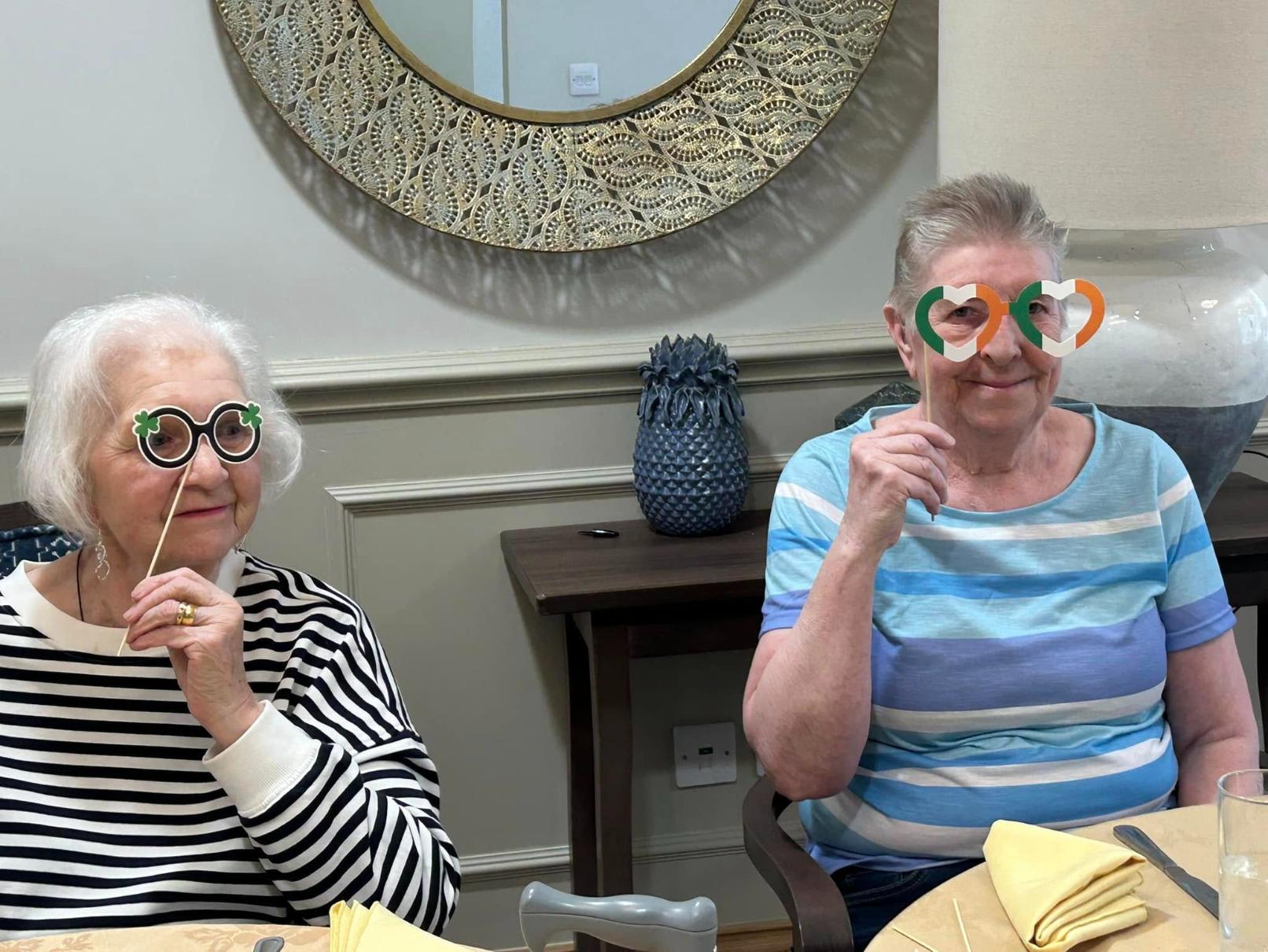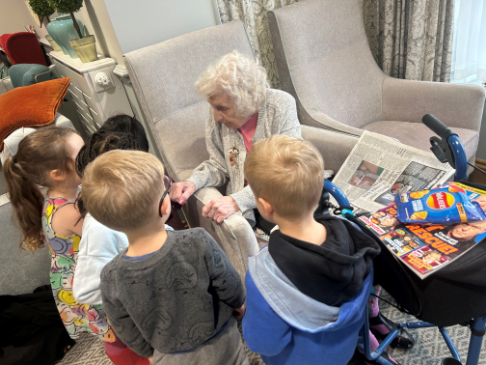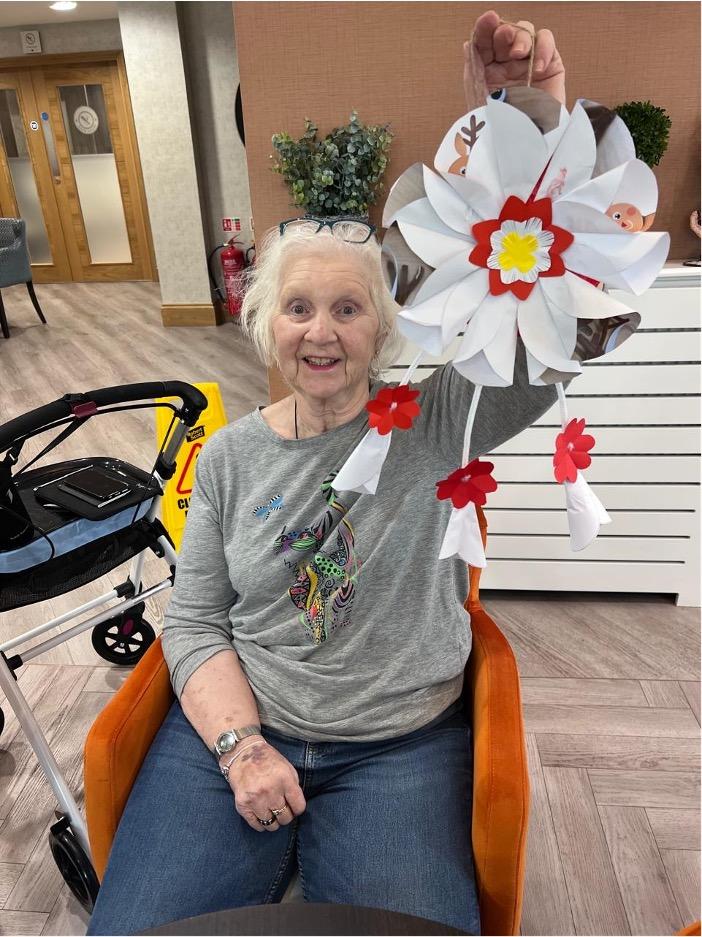Your Story, Your Care: The Importance of a Personalised Care Plan

Choosing a care home involves crucial decisions, beyond health and social care; ensuring your well-being and individuality are prioritised is paramount to the support planning process. This is where personalised care plans come into play. They are the cornerstone of a resident-centred approach, ensuring your unique story shapes your care experience.
What is a Personalised Care Plan?
A personalised care plan is a collaborative document developed by you, your loved ones, and the professionals on the care team. It outlines the specific care and support you require to maintain your independence, dignity, and well-being. This plan is not static; it is regularly reviewed and updated to reflect your evolving needs and preferences.
What are the Benefits of Personalised Care Plans?
Statistics Highlight the Growing Benefits of Personalised Care:
- A 2022 report by the National Institute for Health and Care Excellence (NICE) found that residents receiving personalised care reported higher levels of satisfaction compared to those in more traditional care settings.
- Research conducted by the University of Bradford in 2021 revealed that personalised care plans can lead to significant improvements in residents' mental and emotional well-being.

Enhanced Well-being and Increased Independence: A Personalised Approach to Your Life
Imagine living in a supportive environment where your unique needs and preferences are not just acknowledged, but actively incorporated into your daily routine. This is the essence of tailored support within a very personalised care and support plan. It goes beyond simply providing basic care; it empowers you to maintain your independence and well-being while creating a sense of fulfillment.
Tailored Support in Action
Physical Needs:
- Does getting dressed in the morning require some assistance? Your care plan can incorporate support from a dedicated carer, allowing you to maintain your routine while ensuring your safety and well-being.
- Do you require medication management? The care team will work closely with you and your doctor to ensure all medications are taken correctly, providing peace of mind and promoting your physical health.
Mental and Emotional Needs
- Feeling stressed or anxious? Your care plan can incorporate access to therapy sessions, relaxation techniques, or simply engaging conversations with a compassionate carer, supporting your mental and emotional well-being.
- Do you miss feeling connected to loved ones? The care team can help facilitate video calls, organise visits, or assist with writing letters, maintaining social connection and combating feelings of isolation.
Social Needs
- Do you enjoy spending time with others? Your care plan can encourage participation in social events, group activities, or simply chats with fellow residents, promoting social interaction and a sense of belonging.
- Do you have specific cultural or religious needs? The care team will strive to understand and respect your traditions, ensuring you feel valued and supported within the community.
Benefits of Tailored Support
- Improved Health Outcomes: By addressing your unique needs, the care team can help you maintain your physical and mental well-being, potentially leading to improved health outcomes and a better quality of life. This can involve managing chronic conditions, promoting healthy habits, and ensuring timely access to necessary healthcare services.
- Increased Sense of Dignity and Respect: Receiving support tailored to your specific needs demonstrates respect for your individuality and helps you maintain your dignity and independence. This can be particularly important for individuals who may be facing declining physical or cognitive abilities.

Greater Sense of Autonomy: Promoting Choice and Control
Being actively involved in shaping your very own health care plan is crucial for creating a sense of control, self management and autonomy. This means:
- Open Communication and Collaboration: The care team actively listens to your preferences, concerns, and aspirations throughout the care planning process. You have the opportunity to express your wishes and collaborate in developing a plan that reflects your unique needs and goals.
- Choice in Daily Routines: Whenever possible, you have the freedom to choose your preferred wake-up and sleep times, meal options, and daily activities. This allows you to maintain a sense of control and routine in your life, even within a care setting.
- Making Decisions About Your Care: You are encouraged to participate in making decisions about your care, from preferences for medication administration to involvement in recreational activities. This empowers you to take ownership of your well-being and maintains a sense of self-determination.
Benefits of Promoting Choice and Control
- Increased Satisfaction and Well-being: Feeling empowered and in control over your life can significantly boost your satisfaction with your care experience and lead to a more positive outlook on life.
- Improved Sense of Self-worth: When you can make choices and contribute to your care plan, you feel valued and respected, leading to a stronger sense of self-worth and confidence.
- Enhanced Engagement and Motivation: Having a say in your care plan can encourage you to be more engaged in daily activities and participate in decisions that impact your well-being.
By prioritising tailored care and support options and promoting choice and control, care homes can achieve a sense of independence, dignity, and fulfillment for their residents. This personalised approach empowers individuals to live life to the fullest, respecting their unique needs and a sense of well-being throughout their care journey.
Improved Care Quality and Communication
Personalised care plans not only empower residents, but also lead to improved care quality and communication. Imagine a care team that truly understands your unique needs and preferences. Personalised care represents going beyond just knowing your medical history. It encompasses:
- Understanding your daily routines and preferences: Knowing your preferred wake-up time, favorite activities, and dietary needs allows the care team to personalise your experience and ensure it aligns with your preferences.
- Identifying potential risks and concerns: By understanding your individual strengths and weaknesses, the care team can proactively address potential risks and implement preventative measures, promoting your safety and well-being.
- Tailoring interventions and support: Whether it's adapting physical assistance for daily activities or providing emotional support during challenging times, the care team can tailor their interventions to your specific needs, leading to more effective and impactful care.
Benefits of an Individualised Approach
- Improved health outcomes: By addressing your unique needs and tailoring interventions, the care team can potentially improve your health outcomes, from managing chronic conditions to promoting faster recovery times.
- Reduced risk of complications: Early identification of potential risks allows for proactive measures, potentially reducing the likelihood of complications and hospital admissions.
- Enhanced sense of well-being: Receiving personalised care that caters to your individual needs can significantly contribute to a more positive and fulfilling care experience.

Stronger Collaboration: Open Communication for Shared Care
The collaborative nature of developing and reviewing your care plan encourages open communication between you, your family, and the care team. This means:
- Shared decision-making: You and your loved ones are actively involved in discussions about your care plan, creating a sense of collaboration and ownership over your well-being.
- Regular communication and updates: The care team keeps you and your family informed about your progress, any changes in your health, and upcoming appointments, ensuring everyone is on the same page.
- Open communication of concerns: You and your family are encouraged to voice any concerns or questions you may have, allowing the care team to address them promptly and effectively.
Benefits of Collaboration in the Care Home
- Improved care coordination: Open communication between all parties involved ensures a more coordinated approach to your care, reducing potential conflicts or misunderstandings.
- Early identification of changes: Addressing concerns and observations from both you and your family allows the care team to identify potential changes in your health sooner and take necessary actions.
- Increased peace of mind: Knowing that your care plan is developed and reviewed collaboratively with your loved ones can provide you and your family with greater peace of mind and a sense of partnership in your well-being journey.
By taking an individualised approach and having stronger collaboration, care homes can deliver more effective and impactful care. This not only improves resident health outcomes but also builds a sense of trust, respect, and shared responsibility for everyone involved.
Catering to Your Individuality and Passions
One of the most crucial aspects of personalised care involves recognising and nurturing your individuality. This whole care system goes beyond simply providing basic needs; it's about respecting your unique story and creating an environment where you feel valued and supported in pursuing the things that matter to you.
Maintaining a Sense of Identity
Your care plan doesn't erase your passions. Whether it's gardening, painting, playing music, or simply enjoying a good book, your care team actively seeks to incorporate your hobbies and interests into your daily routine. This could involve:
- Organising group activities based on shared interests, like movie nights or book clubs.
- Facilitating access to necessary resources and equipment, allowing you to continue your hobbies independently.
- Encouraging participation in local community events or clubs that cater to your specific interests.
Your cultural background and traditions are integral to your sense of self. A personalised care plan recognises this by:
- Offering culturally appropriate meals and celebrating religious or cultural holidays.
- Providing support from staff members who understand and respect your cultural values and customs.
- Encouraging continued engagement with your cultural heritage through language classes, music, or traditional activities.
Benefits of Maintaining a Sense of Identity
- Increased self-worth and confidence: Engaging in activities you enjoy and feeling valued for your unique background can significantly boost your self-esteem and confidence.
- Improved well-being and mental health: Participating in activities that bring you joy and purpose can contribute to a more positive outlook on life and improved mental well-being.
- Reduced feelings of isolation: Sharing your passions and traditions with others can find a sense of belonging and connection within the care home community.

Promoting Continued Engagement
By catering to your individual preferences, the care team actively encourages you to engage in activities and social interactions that enrich your life. This goes beyond simply filling your time; it's about creating opportunities for:
- Social interaction: Participating in social events, group activities, or simply having conversations with fellow residents can combat feelings of isolation and loneliness.
- Cognitive stimulation: Engaging in activities that challenge your mind, like puzzles, games, or discussions, can help maintain cognitive function and prevent boredom.
- Physical activity: Participating in activities tailored to your abilities, from gentle walks to exercise classes, can improve physical fitness, mobility, and overall well-being.
Benefits of Promoting Continued Engagement
- Improved quality of life: Engaging in activities you enjoy can bring purpose and meaning to your life, leading to a more fulfilling experience.
- Enhanced physical and mental health: Regular physical activity and mental stimulation can contribute to improved physical and mental health benefits.
- Stronger sense of community: Engaging with others reinforces a sense of belonging and connection within the care home, reducing feelings of isolation and loneliness.
Remember: Your individuality is what makes you unique. A personalised care plan that respects your identity and promotes continued engagement is essential for creating a truly fulfilling and enriching care experience.
Examples of Personalised Care in Action
The following are fictional examples of personalised care in action, showcasing how care plans can be tailored to individual needs and preferences:
Mr. Thomas: A Passion for Nature and Learning
Mr. Thomas, a retired teacher, has always been passionate about nature and lifelong learning. He enjoys spending time outdoors, tending to his garden, and attending local lectures on various topics.
Mr. Thomas' care plan incorporates regular walks in the care home's beautiful gardens or nearby parks, allowing him to connect with nature and enjoy fresh air. The care team assists him in participating in gardening activities, providing the necessary support to maintain his passion for nurturing plants.
They facilitate Mr. Thomas' attendance at local lectures or library events that cater to his interests, his health and wellbeing by keeping his mind stimulated and engaged. Additionally, the care team can encourage social interaction by connecting him with other residents who share similar interests in nature and learning.
Ms. Sharma: Celebrating Cultural Heritage
Ms. Sharma, a recently immigrated resident, comes from a vibrant cultural background and enjoys celebrating her heritage through traditional music and dance.
Ms. Sharma's care plan incorporates meals that cater to her cultural preferences and dietary needs, ensuring she feels comfortable and familiar with the food offered. The care team organises events and activities that celebrate cultural diversity, such as inviting musicians or dance groups to perform traditional music and dances.
Staff members who understand Ms. Sharma's cultural background are available to provide support and facilitate communication if needed. The care team can also encourage Ms. Sharma to share her cultural heritage with care professionals and other residents, ensuring a sense of understanding and community within the care home.
Mr. Johnson: Rekindling a Long-Lost Passion
Mr. Johnson, a retired engineer, has always dreamt of learning to play the guitar but never had the opportunity. However, due to age-related limitations, he feels apprehensive about starting something new.
Mr. Johnson's care team initiates a conversation about his long-held passion for playing the guitar. They provide him with resources and support options through information about beginner-friendly guitar lessons or online tutorials tailored to his abilities.
The care team also connects him with a music therapist who can offer personalised guidance and support, addressing any mental and physical health limitations and boosting his confidence in learning a new skill.
By providing encouragement and support, Mr. Johnson feels empowered to pursue his passion, potentially leading to improved cognitive function, a sense of accomplishment, and a renewed zest for life.
These examples demonstrate how personalised care plans go beyond simply meeting basic needs. They actively incorporate individual preferences, passions, and cultural backgrounds to create a truly nurturing and fulfilling environment for residents. By respecting and celebrating individuality, care homes can empower residents to live life to the fullest, even within a supportive care setting.

Beyond the Basics: Personalised Care in a Supportive Environment
While the above examples highlight the importance of individualised care plans, it's crucial to consider the wider environment when making your choice. A care home that prioritises resident well-being will naturally integrate personalised care and support planning into its very core. This can be seen in:
- A Warm and Welcoming Atmosphere: Look for a care home that has a sense of community and belonging, where residents feel valued and respected as individuals.
- Diverse Activities and Amenities: A good care home offers a range of activities and amenities to cater to various interests, promoting social interaction and mental stimulation.
- Highly Qualified and Compassionate Staff: A dedicated team that takes the time to understand and respect individual needs is essential for delivering effective and personalised care.
Finding the Right Fit: Choosing a Care Home that Prioritises You
Choosing a care home is a personal decision, and it's essential to find one that aligns with your values and makes a priority of your well-being. By understanding the importance of personalised care plans and seeking a care home that encourages individuality, you can increase the likelihood of finding an environment that feels like home.
Remember, don't hesitate to ask questions and visit different care homes to experience their culture and approach firsthand.
By taking the time to explore your options and engaging in open communication with care providers, you can make an informed choice that brings you peace of mind and ensures your individual needs are met.
Find Out More About Valerian Court Care Home
If you would like to find out more about personal care plans and the services that we provide to our care home in Oxfordshire, get in contact with our friendly team today.






